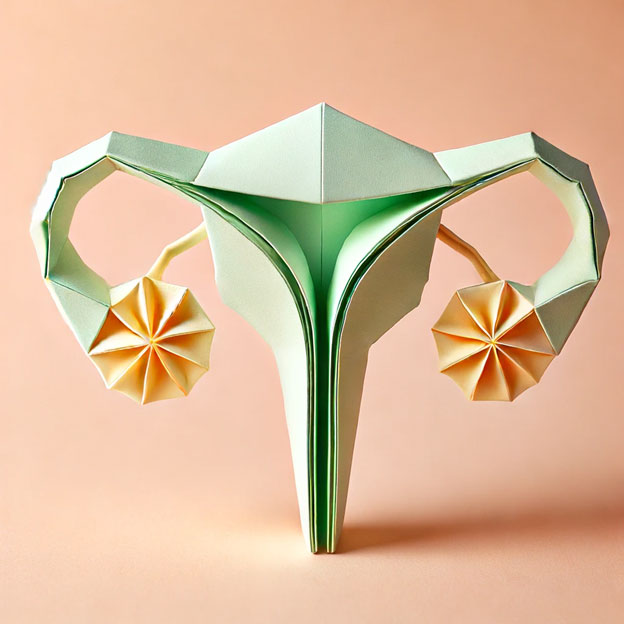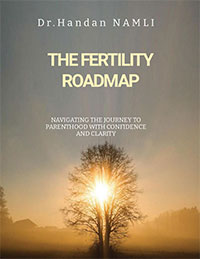
Does Low Ovarian Reserve Mean Early Menopause?
Low ovarian reserve and early menopause are two terms often discussed in the realm of reproductive health. Understanding the nuances and connections between these two conditions is essential for women looking to gain insight into their fertility and overall health. In this article, we'll explore what low ovarian reserve means, its implications, the potential link to early menopause, and steps women can take to manage these conditions.
What is Low Ovarian Reserve?
Ovarian reserve refers to the number and quality of eggs present in a woman's ovaries at any given time. Women are born with a finite number of eggs, which decline in quantity and quality with age. Low ovarian reserve (LOR) indicates a lower than average count of eggs remaining in the ovaries.
Causes of Low Ovarian Reserve
- Aging: The most common cause, as ovarian reserve naturally declines with age.
- Genetic Factors: Some women have a predisposition to a lower ovarian reserve.
- Medical Treatments: Chemotherapy or radiation can reduce ovarian reserve.
- Surgery: Ovarian surgeries can deplete the number of eggs.
- Autoimmune Disorders: Conditions where the body's immune system attacks its own ovarian tissue.
- Lifestyle Factors: Smoking, excessive alcohol consumption, and severe stress can negatively impact ovarian reserve.
Symptoms of Low Ovarian Reserve
- Irregular menstrual cycles
- Shortened menstrual cycles
- Difficulty conceiving
- Elevated follicle-stimulating hormone (FSH) levels
- Lower anti-Müllerian hormone (AMH) levels
What is Early Menopause?
Menopause typically occurs between the ages of 45 and 55, marking the end of a woman's reproductive years. Early menopause refers to menopause that occurs before the age of 40. It is often a sudden and unexpected transition that can have significant physical and emotional impacts.
Causes of Early Menopause
- Genetics: Family history of early menopause.
- Autoimmune Disorders: Immune system attacks the ovaries.
- Medical Treatments: Chemotherapy, radiation, and certain surgeries.
- Infections: Rare infections that affect the ovaries.
- Lifestyle Factors: Smoking, high body mass index, and poor nutrition.
Symptoms of Early Menopause
- Hot flashes
- Night sweats
- Vaginal dryness
- Mood swings
- Decreased libido
- Irregular or absent periods
The Link Between Low Ovarian Reserve and Early Menopause
While low ovarian reserve and early menopause are related to a decline in ovarian function, they are not synonymous. Here’s how they are connected:
- Ovarian Function Decline: Both conditions result from a reduction in the number and quality of ovarian follicles.
- Premature Ovarian Failure (POF): Women with low ovarian reserve are at a higher risk of experiencing premature ovarian failure, which can lead to early menopause.
- Hormonal Imbalance: Low ovarian reserve can lead to hormonal imbalances similar to those experienced during menopause.
- Reproductive Challenges: Both conditions can lead to difficulties in conceiving naturally.
Key Differences
- Diagnosis: Low ovarian reserve is diagnosed through tests like AMH and FSH levels, while early menopause is diagnosed based on the absence of menstrual periods for 12 consecutive months before the age of 40.
- Treatment Focus: Management of low ovarian reserve often focuses on fertility preservation and treatments, whereas early menopause management focuses on mitigating menopausal symptoms and maintaining overall health.
Managing Low Ovarian Reserve and Early Menopause
Understanding and managing these conditions is crucial for women who wish to conceive or maintain a high quality of life. Here are some strategies:
For Low Ovarian Reserve
- Fertility Treatments: Options like IVF (In Vitro Fertilization, egg donation) can help women conceive.
- Egg Freezing: Preserving eggs at a younger age for future use.
- Healthy Lifestyle: Maintaining a healthy diet, regular exercise, and avoiding smoking and excessive alcohol consumption.
- Supplements: Some studies suggest that supplements like Coenzyme Q10 and DHEA may improve egg quality.
For Early Menopause
- Hormone Replacement Therapy (HRT): Helps to manage symptoms like hot flashes and vaginal dryness.
- Bone Health: Regular exercise and calcium supplements to prevent osteoporosis.
- Emotional Support: Counseling and support groups to address the emotional impact.
- Healthy Lifestyle: Balanced diet, regular physical activity, and avoiding smoking and excessive alcohol consumption.
Conclusion
Low ovarian reserve and early menopause are significant reproductive health concerns that can impact a woman’s fertility and overall well-being. While they share some common features, they are distinct conditions requiring tailored management strategies. Early diagnosis and proactive management are key to mitigating the impacts of these conditions. Women should consult healthcare professionals to understand their specific situation and explore the best options for their health and fertility.
SEO Keywords
- Low ovarian reserve
- Early menopause
- Premature ovarian failure
- Ovarian function decline
- Fertility preservation
- Hormone replacement therapy
- Menopausal symptoms
- Reproductive health
- Egg quality improvement
- Fertility treatments

